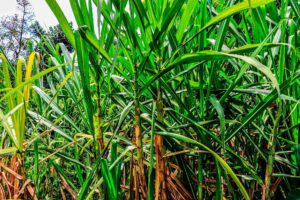During the FRACTION project there will be six roundtables to co-create and bring researchers and industries together. This concept is also providing input for market uptake analysis. The roundtable meetings are hosted in different countries to give a pan-European and multistakeholder outreach.
The first roundtable was held in Madrid, Spain, in a hybrid format gathering 37 attendees. The topic of the discussion was the opportunities of agri-based biomass. Three local companies giving their presentations were technology center AIMPLAS, engineering company Técnicas Reunidas and Spanish Biomass Association AVEBIOM.
Growing interest for bioplastics
According to Aimplas Lignocellulosic biomass has enormous potential for producing value-added bioproducts and bioplastics. The current challenge is to improve the performance of the biobased polymers to match the functionalities of fossil-based polymers. The futher commercial success of bioplastics will depend for example on improving the value chains to reduce gaps, economic feasibility, environmental impact and visibility to society of the benefits of bioplastics.
Two strategies for valorization of biomass:
In Tecnicas Reunidas presentations biorefining was presented as an integrated industry enabling sustainable processing of biomass fractions. Valorization of biomass can have two strategies: Drop- in or Replacement. In Drop-in biobased chemicals or building blocks are added to fossil-based transformation. The route can be petro-chemical conversion, but the current policies are not favoring the drop-in route.
The latter strategy is substituting fossil-based chemicals or building blocks with biobased alternative. A dedicated market development strategy targeted at bio-based chemicals or materials would encourage demand for biobased alternatives. This strategy would induce innovative products, new supply chains, encourage new transformation routes and market development.
The base case for price should be realistic. A green premium may happen, but it is not a guarantee for a commercial success of the profitable production. Markets for biobased products are complex. A way forward is a smart Drop-in strategy which is highly relevant for taking biobased chemicals to the market. Biobased offering building blocks must be targeted to meet market needs. Important: Biobased products including offering building blocks may be developed by R&D but the goal is to commercialize these products to the market.
Synergy to better enable valorization of biomass
AVEBIOM (Spanish Biomass Association) represents the 160 member companies of the whole biomass supply chain and handles labels for biobased products in Spain. At the moment bio-energy is the biggest application of biomass in Spain, and bioenergy is the bio-sector with the strongest growth.
The sectors bioenergy and, bio-chemicals and materials need to grow in synergy to better enable valorization of biomass. Integration of processes could be a way forward. Targets for biobased products are needed to grow the market. Binding targets are regarded as more effectful than green labels.
It is calculated that 18 million tons of biomass could be made available in Spain from pruning, forests and afforestation and, from abandoned land. However, the management of this biomass may be more of an environmental concern than for economic benefit. Keep in mind that it may be cheaper to import biomass (e.g., miscanthus) than growing the crop on e.g., abandoned land. It is also important to consider if use of lignocellulosic biomass has an impact on land use – positive or negative.
Outcomes from the first roundtable
The main outcomes of these three presentations were related to gain the sustainability target. Depending on the point of view there must be consumer demand for more biobased plastics, but on the other hand the cost for both consumer and industry might be higher. Government role in willing to invest in biobased products is important and companies need support in scaling the production. Green labelling is not directly changing the processes. A supply chain example from Spain is the biomass flow of olive stones, olive press cake in total circa 8 million tons. The demand for the biomass is the key issue for development in biomass availability and supply chains. In plenary discussion was stated also the need for chemical recyclability or biodegradability.
For further information, please contact:
FRACTION research: David Alonso, CSIC, david.alonso@csic.es
FRACTION newsletter and connect as stakeholder: Tiina Witikkala, CLIC, tiina.witikkala@clicinnovation.fi
Roundtable meetings: Karen Hamann, IFAU Institute for Food Studies & Agro Industrial Development, karen@ifau.dk
The next roundtable will be held on 10th June 2022 in Schaffhausen, Switzerland during the 3rd GA Meeting of FRACTION. From this link, you can find the planned topics, time and place for the roundtables.
